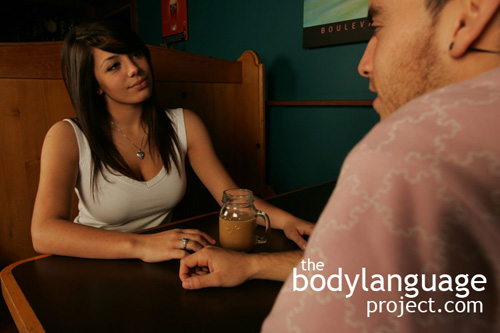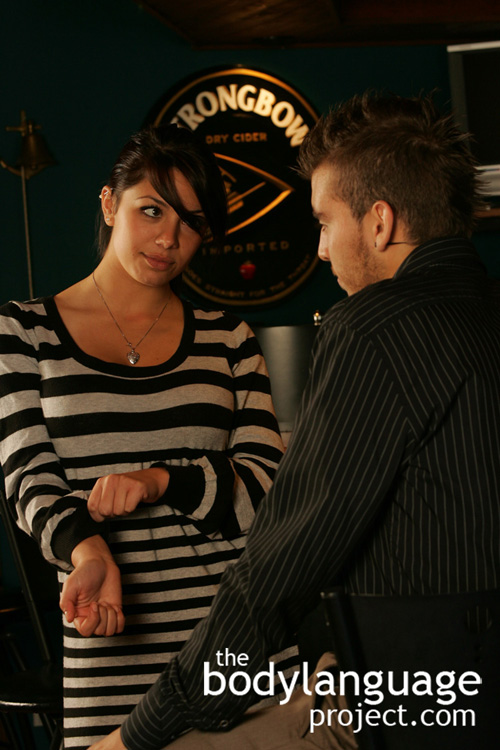
Head titled at 45 degrees coupled with the looking-up-through-the-forehead is a cue cluster of interest.
Looking up through the forehead is done by tilted the head at a forty-five degree angle and looking upwards. The posture is a reflection back into early childhood as children look up at us as seeking our approval or permission. Children might even add a big pouty lip as icing on the cake! This is a submissive posture and is included here in the chapter on eye language because the eyes play such an important role. When used by women it comes across as a “come-hither look.” It makes women appear more childlike and evokes protective feelings in men. The posture can be used to gain sympathy from others as well. Take for example, the asking of directions in a foreign environment. Adding a head tilt shows that you are no threat and also shows that you are in need of help. Subconsciously, people will see that you sincerely need and deserve the help, and will be more willing to assist you. It might even help reduce punishment should the context warrant it.
A study conducted in 2006 headed by Eva Krumhuber of the United Kingdom presented subjects with male and female computerized characters differing in types of smiles and head tilting. They found that a “slow onset smile”, a smile that gradually forms versus one that quickly flashes across the face, was not only more attractive, more trustworthy and more flirtatious but also less fake and less dominant. This held true for both men and women. The head tilt added an extra positive dimension as well. In the study they rated people as being even more attractive and trustworthy when they canted their head rather than kept it upright. The lesson here is that both men and women can use head tilt coupled with an honest slow growing smile to positively influence people.
The head tilt can also be helpful in creating cooperative arrangements or even favourable impressions, empathy and warmth, with just about everyone. Women are traditionally the most effective users of this gesture and for children, it comes naturally. Children are keen to use this ploy on us as they beg for sweets or for a sleep-over party or permission to join extra curricular activities. They pout their lips, tilt their head, and look up at us through sad eyes. If done properly, it makes us want to care for them and meet their needs but if overused, it makes us revolt, not unlike what we might see if overused by adults.

